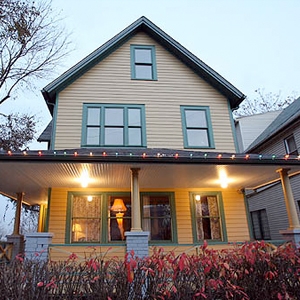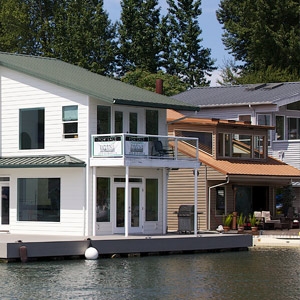Moorage Fee or HOA Fee
 Floating homes have either a Moorage Fee OR an HOA fee
Floating homes have either a Moorage Fee OR an HOA fee
All floating homes are located in communities. The community is the dock and upland system. The dock is where your new floating home is moored, in water space next to the dock system. The uplands are the river bank where you park your car and access the moorage docks by a ramp.
Moorage fee or HOA fee: What’s the difference?
An easy answer is the HOA fee is a Home OWNER association fee. That means that in the process of purchasing your floating home, you have included buying a fractional interest in the moorage itself. The moorage itself means: a portion of the uplands, an existing lease on the moorage property with the Bureau of State Lands, a portion of the docks and  exclusive use of the slip where you moor your house. A Moorage Fee is where you pay rent to the person or company that owns the moorage including a lease with the Bureau of State Lands, the docks and the slip.
exclusive use of the slip where you moor your house. A Moorage Fee is where you pay rent to the person or company that owns the moorage including a lease with the Bureau of State Lands, the docks and the slip.
So, what is the difference: Moorage fee or HOA fee?
All moorage fees or HOA fees pay for the common utility bills such as water, sewer, garbage service and the general upkeep budget for the moorage itself. Moorage fees are usually higher because they include payment to the owner of the moorage for his or her investment in the property. When you participate in owning the moorage, your fees are generally lower because you still pay for the monthly utility bills, but you own the docks so you don’t have to pay someone else for rent. Ownership of the moorage carries more financial responsibility for repairs and maintenance, but you get to have some control over that. Slip lease moorages usually cost a bit less in purchase price, but you also may have increases in the monthly fee over time. This is something you should investigate at the time of purchase. Either owning or leasing the slip can make sense for your particular situation.









Is there a percentage limit that a moorage fee can be increased on a yearly basis in Washington state?